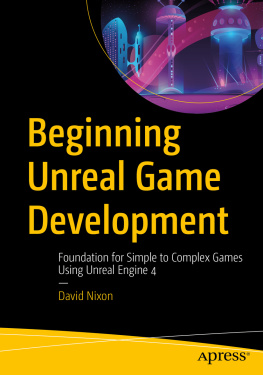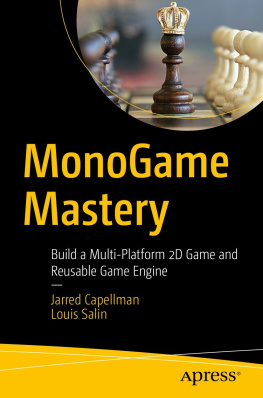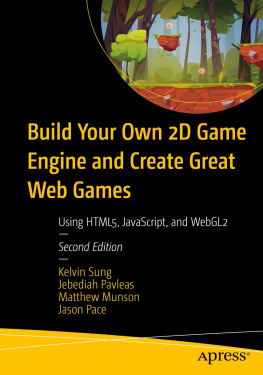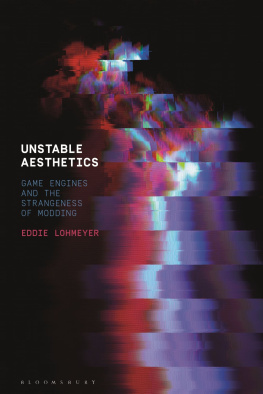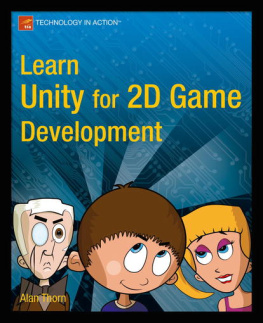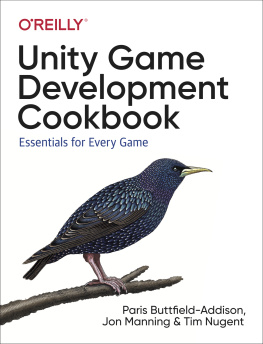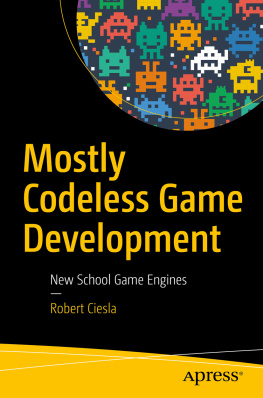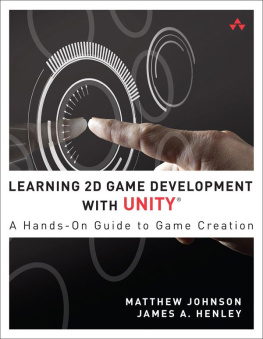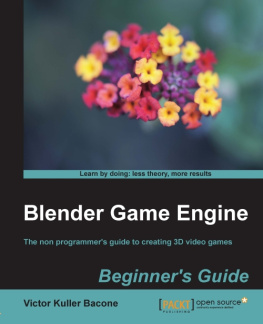
THE PERSISTENCE OF CODE IN GAME ENGINE CULTURE
With its unique focus on video game engines, the data-driven architectures of game development and play, this innovative textbook examines the impact of software on everyday life and explores the rise of engine-driven culture.
Through a series of case studies, Eric Freedman lays out a clear methodology for studying the game development pipeline, and uses the video game engine as a pathway for media scholars and practitioners to navigate the complex terrain of software practice. Examining several distinct software ecosystems that include the proprietary efforts of Amazon, Apple, Capcom, Epic Games and Unity Technologies, and the unique ways that game engines are used in non-game industries, Freedman illustrates why engines matter.
The studies bind together designers and players, speak to the labors of the game industry, value the work of both global and regional developers, and establish critical connection points between software and society. Freedman has crafted a much-needed entry point for students new to code, and a research resource for scholars and teachers working in media industries, game development and new media.
Eric Freedman is Professor and Dean of the School of Media Arts at Columbia College Chicago. He is the author of Transient Images: Personal Media in Public Frameworks (2011) and serves on the editorial board of the International Journal of Creative Media Research and the advisory board of the Communication and Media Studies Research Network.
Freedman skillfully reveals the importance of game engines for understanding contemporary video games. And then, he goes one step further, and reveals just how important they are for understanding cities, consumerism, and nearly every other aspect of modern life. This is a must read for every student of the media.
Eric Gordon, Professor of Civic Design, Emerson College
Eric Freedman has taken a complex and concealed topic how game engines function to constrain and create possibilities, which helps him consider the impact of code on everyday life and rendered it visible. Freedman presents a wellwritten and well-informed critical analysis, using case studies that problematize and facilitate the interrogation of these technologies in their social contexts from multiple angles.
Rebecca Ann Lind, Associate Professor of Communication, University of Illinois at Chicago
First published 2020
by Routledge
52 Vanderbilt Avenue, New York, NY 10017
and by Routledge
2 Park Square, Milton Park, Abingdon, Oxon OX14 4RN
Routledge is an imprint of the Taylor & Francis Group, an informa business
2020 Taylor & Francis
The right of Eric Freedman to be identified as author of this work has been asserted by him in accordance with sections 77 and 78 of the Copyright, Designs and Patents Act 1988.
All rights reserved. No part of this book may be reprinted or reproduced or utilized in any form or by any electronic, mechanical, or other means, now known or hereafter invented, including photocopying and recording, or in any information storage or retrieval system, without permission in writing from the publishers.
Trademark notice: Product or corporate names may be trademarks or registered trademarks, and are used only for identification and explanation without intent to infringe.
Every effort has been made to contact copyright holders. Please advise the publisher of any errors or omissions, and these will be corrected in subsequent editions.
Library of Congress Cataloging-in-Publication Data
A catalog record for this title has been requested
ISBN: 978-1-138-35338-1 (hbk)
ISBN: 978-1-138-35339-8 (pbk)
ISBN: 978-0-429-43424-2 (ebk)
Many people have guided me throughout this project, sharing their creative, technical and critical expertise while revealing a deep commitment to their respective practices. This manuscript would not have been possible without the generosity of a number of individuals working at game studios in Berlin, Frankfurt, Hamburg and Athens, and those advocating for regional investment in game development. I count among them Collin Bishop, Marc Hehmeyer, Malte Kosian, Johannes Kuhlmann, Sven Ossenbrggen, Christoph Schulte, Finn Seliger, Alexander Spohr, Johannes Spohr, Christof Wegmann, Philip Weiss, Cornelius Wiegmann, Karsten Wysk, Konstantina Bethani, Thanos Georgoulis, Theodoros Giannakis, Dimitris Koutsomitsos, Lefteris Kretsos, Kate Mataraga, Anna Mykoniati, Tina Pandi, Charis Papaevangelou, Mike Papagathangelou, Marinos Boyko Pehlivanov, Elina Roinioti and Vasiliki Tsiftsian. My research in Germany and Greece (the latter informs a follow-up study beyond the purview of this book), and in particular my conversations with game developers, programmers, artists and public servants invested in supporting regional and national game development communities highlights the specific labors of those working within the game development pipeline and their negotiations with larger global industrial forcesthe specificity of writing code, building assets and developing games, and the more generalizable lessons of doing this work. This is not simply a landscape of products, a field to be read, but a landscape where individuals are faced with the real pressures and consequences of having to keep their games and their studios afloat in an increasingly competitive field of play. Even as the tools are becoming more democratic and more accessible for entry-level game developers and younger collaborative studio enterprises, the marketplace remains one of careful calculation. Working at the intersections of art, technology and commerce, the passionate engagement and deep knowledge of those creating assets, designing games, working with code and building software programs shaped my perspective and contributed significantly to my understanding of game-based architectures.
I thank those faculty colleagues in the Interactive Arts and Media Department in the School of Media Arts at Columbia College Chicago, who took the time and had the patience to discuss the intricacies of game programming. Portions of were published as part of a related essay in a special issue of Game Studies: The International Journal of Computer Game Research, edited by Bonnie Ruberg and Amanda Phillips; their insights greatly improved my contribution to their volume and contributed to this book in its current state, pointing me toward seminal texts in queer game studies and independent game communities that inform my approach; and the feedback I received from participants at the 2017 Queerness and Games Conference, a vibrant gathering of queer game scholars, developers and players was invaluable, as it provided a broader perspective on both the games community and the games industry, and signaled the importance of engaging with any number of exclusionary or limiting practices. As well, Mary Kearney and Michael Kackman furthered the foundations of my work with their editorial feedback as part of the publication of my contribution on software studies to The Craft of Criticism: Critical Media Studies in Practice.
I would be remiss if I did not acknowledge the fantastic body of ideas being tested out by scholars and practitioners that I have encountered along the way while conducting my research and writing this manuscript, at gatherings that have made significant strides in creating spaces to talk about research in critical game studies, including the video game scholarly interest group affiliated with the Society for Cinema and Media Studies, and those who have shared their work at the Digital Games Research Association, Replaying Japan and Media in Transition; these gatherings continue to highlight the vibrancy of contemporary video game studies, the significant cultural and industrial weight of the field, and the complexity of its channels of influence. I also thank my external reviewers, among them Eric Gordon and Rebecca Ann Lind for lending their critical eyes to my research and pushing me to clarify my arguments; their feedback strengthened the manuscript by making me a more thoughtful writer. Of course, the strongest editorial voice came from my original editor Erica Wetter at Routledge, who expressed enthusiasm for this project at its outset and shepherded the book forward with Emma Sherriff at the press. Finally, I thank my husband, Ryan Ratliff, who has for the second time been a strong voice of encouragement without ever asking me about my progress or my deadlines.


